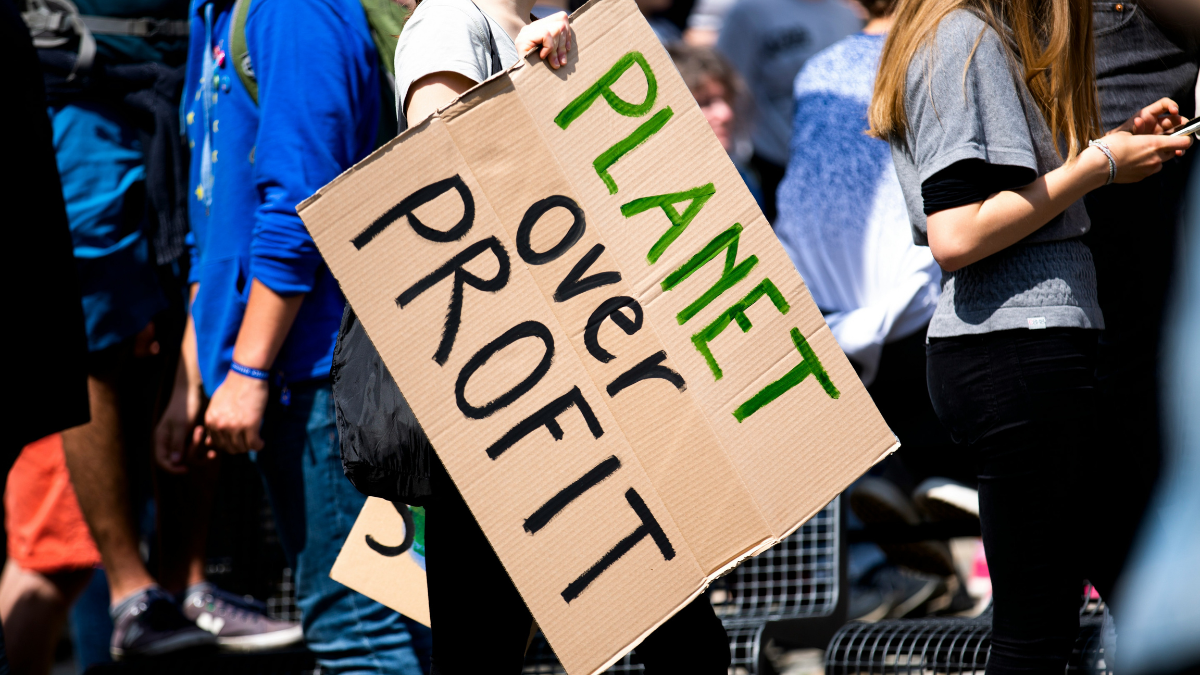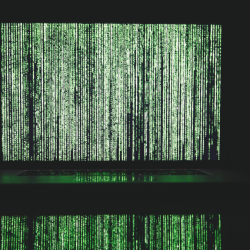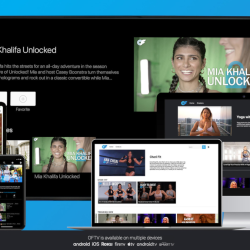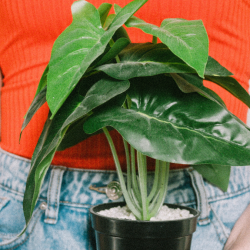Simply calling Joana Guerra Tadeu a digital content creator doesn’t fully capture her work in climate education. The Portuguese influencer, commonly known as ‘Ambientalista Imperfeita’ (which translates to ‘Imperfect Environmentalist’), has also served as the producer and voice of a namesake radio show that aired for 18 months, as well as the content producer and anchor of a TV show consisting of 13 episodes, broadcasted by a public media organisation in Portugal.
‘The idea was to bring young and experienced people to the same table and have them relate a specific environmental and climate topic to human rights,’ explains Tadeu regarding her TV show Verdes Anos (Green Years). ‘We discussed water, energy, culture, health, law, employment, and activism. We managed to seat one of the most active climate activists in Portugal, engaging in civil disobedience quite regularly, with the [Portuguese] Minister of Environment and Climate Action.’
Verdes Anos was the first of its kind in Portuguese media
While there may have been some attempts to integrate climate education into mainstream programming, these are what Joana Guerra Tadeu refers to as ‘the bare minimum,’ such as ‘broadcasting António Guterres’ speeches, covering COP and reporting on breaking news regarding extreme weather events.’ However, the work of the Portuguese influencer also demonstrates that media outlets are receptive to innovative formats when they uphold traditional journalistic values. But is this the only future for climate journalism? Not according to ‘Ebulição.’
In the words of Andreia Galvão, Ebulição is ‘a digital publication that brings together activists, researchers and people interested in debating the climate crisis, its consequences, and strategies for social transformation.’ Galvão, who studied communications and theatre, is one of the members of the team, aiming to ‘contribute to the creation and deepening of fundamental debates for the social and ecological transition needed in Portugal and the world.’
Like Joana Guerra Tadeu, Andreia Galvão believes that Portuguese mainstream media ‘still lack the critical tools to look at the environmental issue (…) as a structural and systemic issue.’ Therefore, creating an independent publication was imperative in adding ‘critical and counter-hegemonic content to the public debate,’ she says.
As climate activists slowly progress from scattered voices to opinion-makers in renowned media outlets, two paths arise…
On the one hand, it is still relevant to adhere to traditional channels to ‘gain the public’s sympathy for the movement and recruiting more voices and bodies for the necessary activism,’ Tadeu considers. For Andreia Galvão, ‘these are important spaces with a lot of visibility, where we [climate activists] can’t help but be.’
On the other hand, environmentalists have been fierce critics of traditional media organisations, whose role in climate education has been lacklustre, if not harmful. Disinformation, once confined to social media, is now also disseminated by journalists who have progressively fewer resources and time to produce evidence-based and fact-checked content.
Climate activists can play a pivotal role in minimising this issue
With diverse backgrounds spanning from environmental sciences to communications, they have built credibility on social media, earning the trust of a growing audience. Mainstream outlets benefit from this, just as digital content creators benefit from the legitimacy that comes with participating in the traditional media landscape. Whether environmentalists are helping journalism adapt to the social media age, like Joana Guerra Tadeu, or establishing their own digital platforms, as Ebulição did, it seems to be a win-win situation. At least, when some ground rules are respected. For instance, Joana Guerra Tadeu is ‘working to move away from any type of advertising to be able to focus solely on journalism.’
In Portugal, accredited journalists are prohibited from engaging in marketing campaigns as a way to safeguard their integrity.
Although for some digital creators that might pose a challenge. For others, it is the opportunity they were expecting to align themselves with their desired path — because at the heart of climate influencing lies not a need for climate-positive consumption, but rather for climate-positive education. And if journalists and environmental content creators are not joining efforts in developing science-backed, accessible, and reliable informational resources, it is we, inhabitants of the global boiling era, who miss out.
Featured image: Markus Spiske / Unsplash































